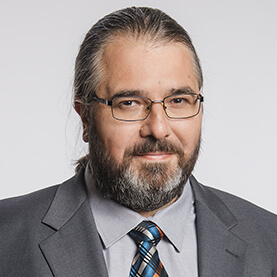
Miklós Kis
Member of the Supervisory Board
“Who am I?,”one asks oneself, especially when having to write an introduction.
“For a waiter, I’m a guest; for a ticket inspector, I’m one of the passengers on the subway,” “for a cop, I’m an individual”, “for a dwarf, a giant, for a giant, a dwarf,”writes Jean-Paul Sartre in Being and Nothingness, and the idea comes up in the lyrics of I Won’t Give Up by Rapülők as well. It all has to do with the same problem: getting an answer to the question of who I am is not easy at all. Western philosophy has been wrestling with this question since Descartes.
One can experiment with different labels: I can say that I am an economic journalist, that I am a public policy consultant. However, these labels hide at least as much as they show. In any case, it is unfortunate for one to define oneself with one’s profession – especially today, when occupations are transformed or discontinuedin huge numbers. Also, every label is unfortunate, as it deprives a person of what makes them different from everybody else: their uniqueness.
Of course, we can say that labelling is necessary. Every person is unique, just like every leaf on a tree is unique. Yet,one cannot think about leaves or people if one does notcategorise them, if one does not link them to some conceptual template – and that may be true even for one’s own self. This means thatone has to link oneself to the conceptual templates one gets from the outside, so that one can learn something about oneself that one can tell others about oneself – say those who soberly warn that labelling is essential. And there is a lot of truth in that. But these sober voices often forget to mention the cost of this necessary labelling. The price we pay for this is clearly described by Nietzsche in On Truth and Lies in a Non-Moral Sense:“Just as it is certain that one leaf is never totally the same as another, so it is certain that the concept ‘leaf’ is formed by arbitrarily discarding these individual differences and by forgetting the distinguishing aspects.” So the basis of human knowledge is forgetfulness, and thereforepeople “are forever turning illusions into truths,” Nietzsche writes. All this leads us to the topic of community foundations. In a small community, we can most realistically perceive our fellow human beings in their uniqueness, and vice versa.
One peculiar consequence of this is that in such a small community we can really perceive who we really are, even if this cannot be grasped in words (see Nietzsche above). This is because we need external points of view in order to be able to seize ourselves (although this is obviously debatable theoretically, but empirically, at least, it is the case that we need such points of view at hand).
One can hardly find a better source of these external perspectives than a small community that aims to make the world around us better. A community whose values we can identify with, which we shape ourselves, into which we are not born but choose for ourselves. That is why the community foundation movement is so important. The goals that community foundations achieve are very important, but at the same time it is at least as important to have such communities – as many and as populous as possible. That is why I, too, try in my own humble way to contribute to the spread of the community foundation movement.
